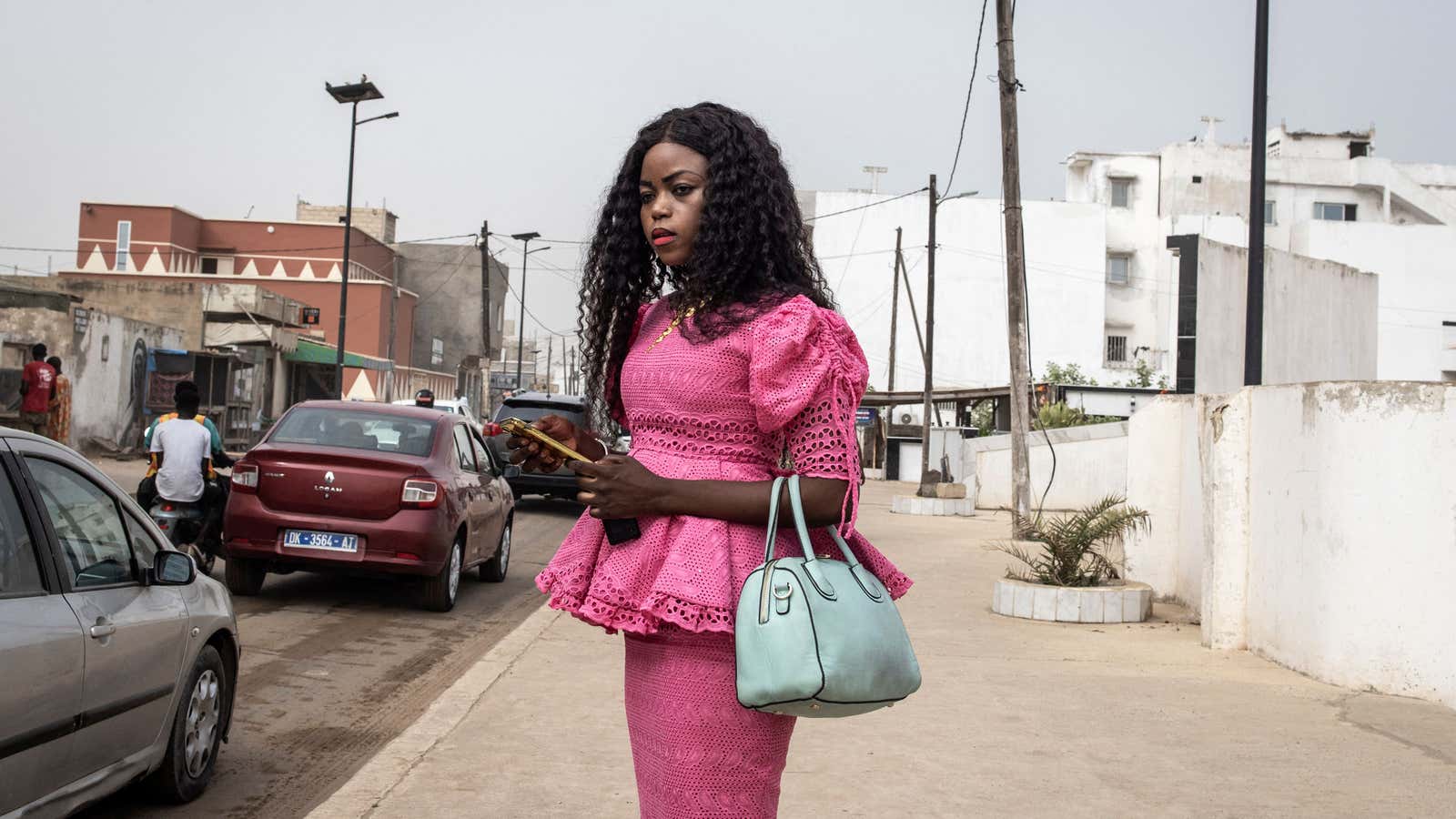Hi Quartz Africa readers,
When I was growing up, American action movies often featured one type of super-villain: A bulky, heavily-accented gruff Russian. At that age, I was not politically aware enough to understand why the hero had to be American and the villain Russian, and I never questioned it much.
As an adult now, I see how global geopolitics comes to play even in pop-culture. In every story, there has to be a hero, a savior of humanity, and the villain has to be someone who threatens these global ideals of democracy, peace and order. It’s even worse if the villain is trying to usurp the hero by almost landing the first man on the moon or having access to even more nuclear weapons.
This past week, the last leader of the Soviet Union Mikhail Gorbachev, died. As an African, the USSR’s legacy on the continent and the fall of the Soviet Union is complicated, as it brought both advantages and disadvantages. The steps Gorbachev took in dismantling the Soviet Union laid seeds for independence in certain parts of southern Africa, including eventually leading to the end of apartheid in South Africa.
Since the fall of the Soviet Union, new narratives have emerged in Hollywood and elsewhere. One superpower is pitted against the other, with Africans expected to pick good from evil. But expecting a clear cut division between good and evil is a fallacy and a failure to understand history and the intricacies at play in every village, town, country and region. One person’s hero is another’s villain—Gorbachev too was more revered abroad than at home.
Your hero might be behind the assassination of DRC’s Patrice Lumumba, one of Africa’s greatest post-colonial heroes. Your hero might have destabilized Mali, laying the seeds for insurgency in the Sahel. Your heroes might have illegally over-fished with giant ships leading to the rise of piracy in the horn of Africa.
African governments’ apparent hesitancy to pick sides on certain geopolitical issues is all the proof needed that things are not always so black and white. Sometimes, it’s complicated. This pseudo-neutrality should be seen as a sign of wisdom from those who know that yesterday’s foes might be tomorrow’s friends. —Ciku Kimeria, Africa editor
Stories this week
The Zambian kwacha is the world’s best performing currency against the US dollar. After taking office in Aug. 2021, Zambia’s president Hakainde Hichilema steered the struggling economy to stability. Faustine Ngila explores the policies behind Zambia’s reduced inflation and strengthening currency.
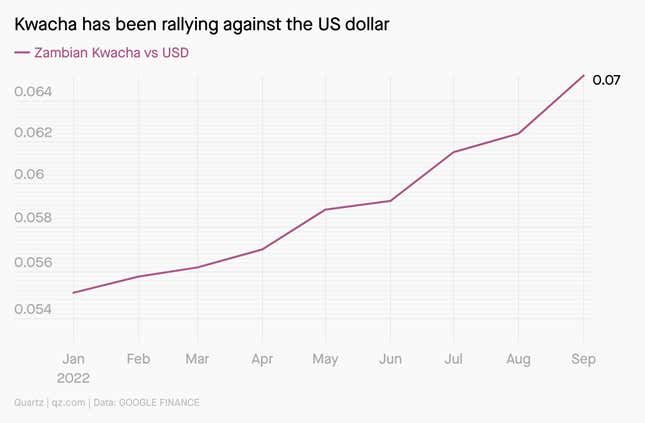
Drone deliveries take off in Ghana. African e-commerce company Jumia has started using drones designed by Zipline, the company known for delivering blood by air. Alexander Onukwue reports on how Jumia intends to use the automated drones to deliver electronics, fashion, health and beauty products, and other items.
Ride-hailing apps make their first foray into Senegal. Tom Collins highlights the startups making inroads into the untapped ride-hailing market.
Kenya is moving away from petrol-powered motorbikes. In the past year, the country has seen an influx of e-motorbikes startups. Faustine Ngila delves into what makes Nairobi such an attractive market.
Emirates will get its money from Nigeria. The Dubai-based airline is one of many that was unable to repatriate $464 million made from ticket sales in Nigeria due to a scarcity of dollars in the country. A central bank intervention has released some of the cash, Alexander Onukwue writes.
E-commerce startup Wasoko moved from Nairobi to Zanzibar. Wasoko set up its planned tech head office in the Tanzanian island due to “better tax incentives,” CEO Daniel Yu told Faustine Ngila.
Investors are asking harder questions. Venture capitalists in Nigeria are raising new funds to continue investing in the tech startup space. But as Alexander Onukwue explains, some aspects of business will no longer be as usual.
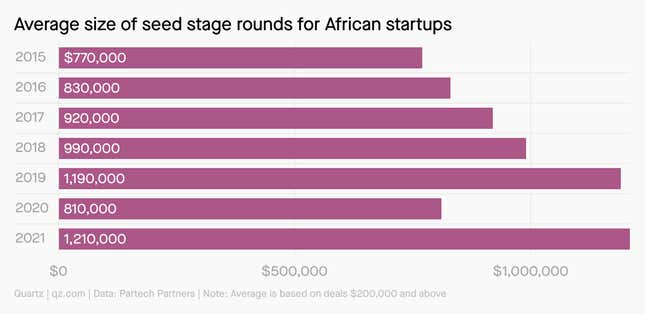
Ethiopia has realized regulating crypto is safer than banning it. Faustine Ngila reports on the savings the country’s cybersecurity agency is achieving.
Mapping Africa’s fintech potential
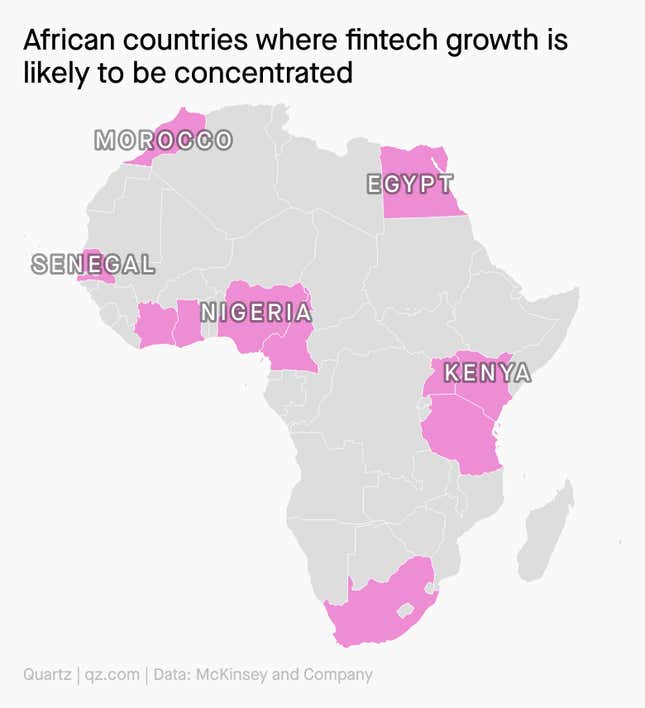
How large is the market for financial services in Africa in dollar terms?
It is one of the most asked questions when investors assess an African fintech startup’s potential. In 2020, the figure was around $150 billion fueled by insurance, retail and SME lending.
Contrary to popular opinion, African fintech is not saturated. While, fintech startups get the lions’ share of all investor funding into Africa, companies in the sector have only scratched the surface with respect to closing the 90% dominance of cash in transactions, Alexander Onukwue explains, based on a new McKinsey report.
Spotlight on a Quartz Africa 2021 Innovator
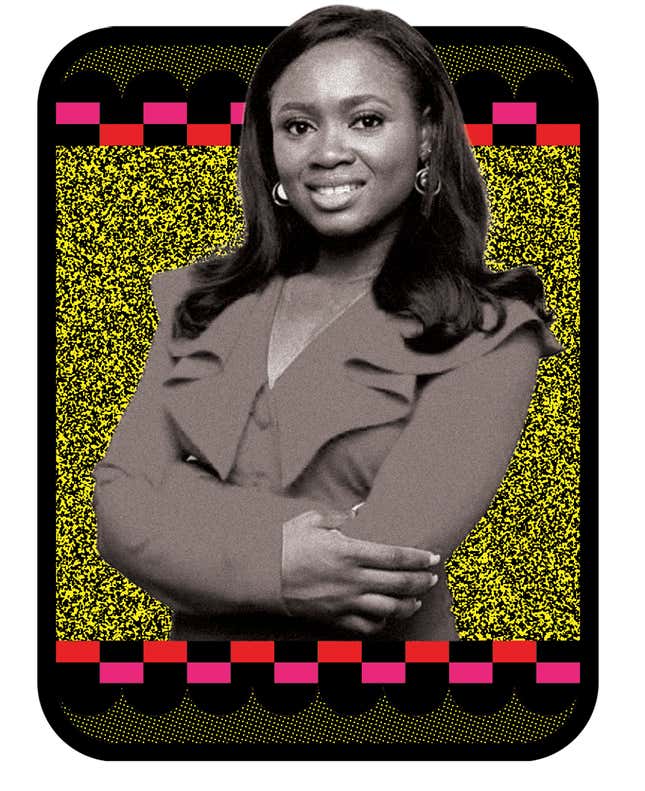
Tomilola Majekodunmi started Bankly in 2019 convinced that providing digital identities to over 60 million Nigerians was the surest route to decrease poverty in a sustainable way.
Think of Bankly as a digital technology service for suburban thrift savings setups, where unbanked users trust an agent who visits at certain periods (sometimes weekly) to record deposits in a paper register.
After raising $2 million from institutional investors in 2021, the company wants to scale up from 15,000 to 50,000 agents, and increase its capacity to serve the digitization needs of small businesses. Bankly is one of many agent-based fintech companies in Nigeria, but Majekodunmi’s focus on thrift savings—a method typically used by women—attempts to solve a problem of exclusion that affects a significant portion of Nigeria’s population.
Check out Quartz Africa’s Innovators 2021 list, which showcases the pioneering work being done by Majekodunm and other female African innovators.
Dealmaker
Grey, a startup that enables Nigerians to own a foreign bank account, raised $2 million in a seed round. Its investors include Y Combinator, Soma Capital, Heirloom Fund, and True Culture Fund. Grey was founded in 2020 and has 100,000 users, per its founders.
Duplo, a Nigerian payments company targeting businesses, raised $4.3 million in a seed round. Its investors include Liquid2 Ventures, Soma Capital, Tribe Capital, Commerce Ventures, Basecamp Fund, Y Combinator, and Oui Capital. Launched in September 2021, the startup has now raised $5.6 million in total with the addition of a pre-seed round seven month ago.
Quartz Gems
Immortality: The cost of living forever

This is a short excerpt from Quartz’s latest Obsession email written by our very own Faustine Ngila.
Have you ever desired to live forever? Or maybe just 200 more years?
The concept of immortality has been around as long as people have been alive. Without getting too philosophical, there is some debate on what immortality actually means. Some believe eternal existence means that our conscious brains live on past the deterioration of our bodies. Others think it’s about postponing the aging process all together.
Technically, if the universe ends like scientists think it will, no one will ever be immortal. But that’s not stopping companies from going all in with anti-aging products and technologies that can keep us alive for much, much longer. Read the full email here.
Other things we liked
Africa’s oldest dinosaur has been found in Zimbabwe. For the BBC, Shingai Nyoka and Oliver Slow report that remains of a dinosaur that lived 230 million years ago have been found at the Zambezi Valley, where there has been gas mining exploration going on.
These Senegalese monks have a unique tune. For the New Yorker, Julian Lucas writes of the monks of Abbey of Keur Moussa in Dakar, Senegal who replaced the organ with a long-necked harp called the Kora, producing a new melody for sacred music.
A vessel blocked the Suez canal. Associated Press’s Samy Magdy details how a Singaporean oil tanker ran aground and blocked the global waterway after developing technical failure.
Teens who died in a South African tavern were suffocated. For Reuters, Johnnie Issac reports that official investigations into the death of 21 teens in June point to suffocation and not poisoning, as earlier reported.
Tanzania is evicting nomadic communities to save its tourism. For the Africa Report, Abdul Halim details the conflict between the Maasai community and the government in Ngorongoro and Loliondo, with the latter now enforcing evictions to preserve a conservancy and boost tourism revenues.
ICYMI
Get up to $85,000 in grants to support women in Tanzania. UN Women Tanzania is asking for proposals from rural and national organizations which aim to to transform gender norms, discriminatory behaviours, and promote women and girls’ voices. (Sept. 16)
Compete for a $100,000 climate tech grand prize. ClimaTech is running a competition for tech brains addressing the most pressing climate challenges on the road to COP27. There will be 10 shortlisted candidates, a special grand prize of $100,000, a top African startup prize of $50,000 and a third prize of $25,000. (Sept. 22)
🎵 This brief was produced while listening to “Beautiful Night“ by Macky2 ft AKA (Zambia)
This week’s brief took you to, 🇰🇪, 🇳🇬, 🇸🇳, 🇪🇬, 🇿🇦, 🇿🇲, 🇬🇭, 🇹🇿, 🇿🇼 and 🇪🇹
Our best wishes for a productive and ideas-filled week ahead. Please send any news, comments, suggestions, ideas, island startup hubs, and eternal life to [email protected]. You can follow us on Twitter at @qzafrica for updates throughout the day.
If you received this email from a friend or colleague, you can sign up here to receive the Quartz Africa Weekly Brief in your inbox every week. You can also follow Quartz Africa on Facebook.
